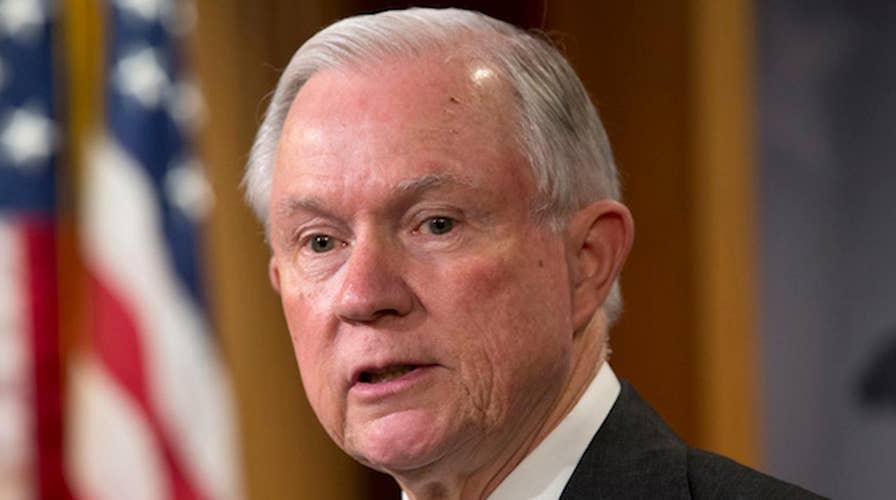AG Sessions asks Obama-appointed US attorneys to resign
Former DOJ official says this action is not unusual
Attorney General Jeff Sessions has asked the remaining 46 U.S. attorneys who served under the Obama administration to resign, the Justice Department announced Friday, describing the move as part of an effort to ensure a "uniform transition."
The department said some U.S. attorneys, as in prior transitions, already had left the department. Now, "the Attorney General has now asked the remaining 46 presidentially appointed U.S. Attorneys to tender their resignations," a spokeswoman said.
“Until the new U.S. Attorneys are confirmed, the dedicated career prosecutors in our U.S. Attorney’s Offices will continue the great work of the Department in investigating, prosecuting, and deterring the most violent offenders,” the statement added.
Department of Justice spokesperson Peter Carr told Fox News late Friday night: “The President called Dana Boente and Rod Rosenstein tonight to inform them that he has declined to accept their resignation, and they will remain in their current positions.”
However, no additional guidance was given on U.S. Attorney General for the Southern District of New York Preet Bharara, who was appointed by then-President Barack Obama and assumed the role of Manhattan U.S. Attorney in 2009. Bharara met with Trump in November and said after the meeting that he had agreed to stay on.
It is customary, though not automatic, for the country's 93 U.S. attorneys to leave their positions once a new president is in office. Incoming administrations over the past several decades typically have replaced most U.S. attorneys during the first year or two.
The Obama administration allowed political appointees of President George W. Bush to serve until their replacement had been nominated and confirmed. One U.S. attorney appointed by Bush, Rod Rosenstein of Maryland, remained on the job for the entire Obama administration and is the current nominee for deputy attorney general.
But Sessions' actions are being closely scrutinized by Democrats after a rocky start to the AG's time at the DOJ.
Weeks after his tight confirmation vote on Feb. 8, it emerged that Sessions had met twice with the Russian ambassador last year -- despite testifying during his confirmation hearing he had no communications with the Russians. Sessions later clarified his testimony, while recusing himself from any investigation into Russian influence in the 2016 campaign.
Sen. Dianne Feinstein, D-Calif., top Democrat on the Judiciary Committee, issued a statement late Friday saying: “I’m surprised to hear that President Trump and Attorney General Sessions have abruptly fired all 46 remaining U.S. attorneys. "
“In January, I met with Vice President Pence and White House Counsel Donald McGahn and asked specifically whether all U.S. attorneys would be fired at once. Mr. McGahn told me that the transition would be done in an orderly fashion to preserve continuity. Clearly this is not the case. I’m very concerned about the effect of this sudden and unexpected decision on federal law enforcement," she said.
U.S. attorneys are responsible for prosecuting federal crimes in the territories they oversee. They report to Justice Department leadership in Washington, and their priorities are expected to be in line with those of the attorney general. The federal prosecutors are nominated by the president, generally upon the recommendation of a home-state senator.
Fox News’ Matt Dean and The Associated Press contributed to this report.













































